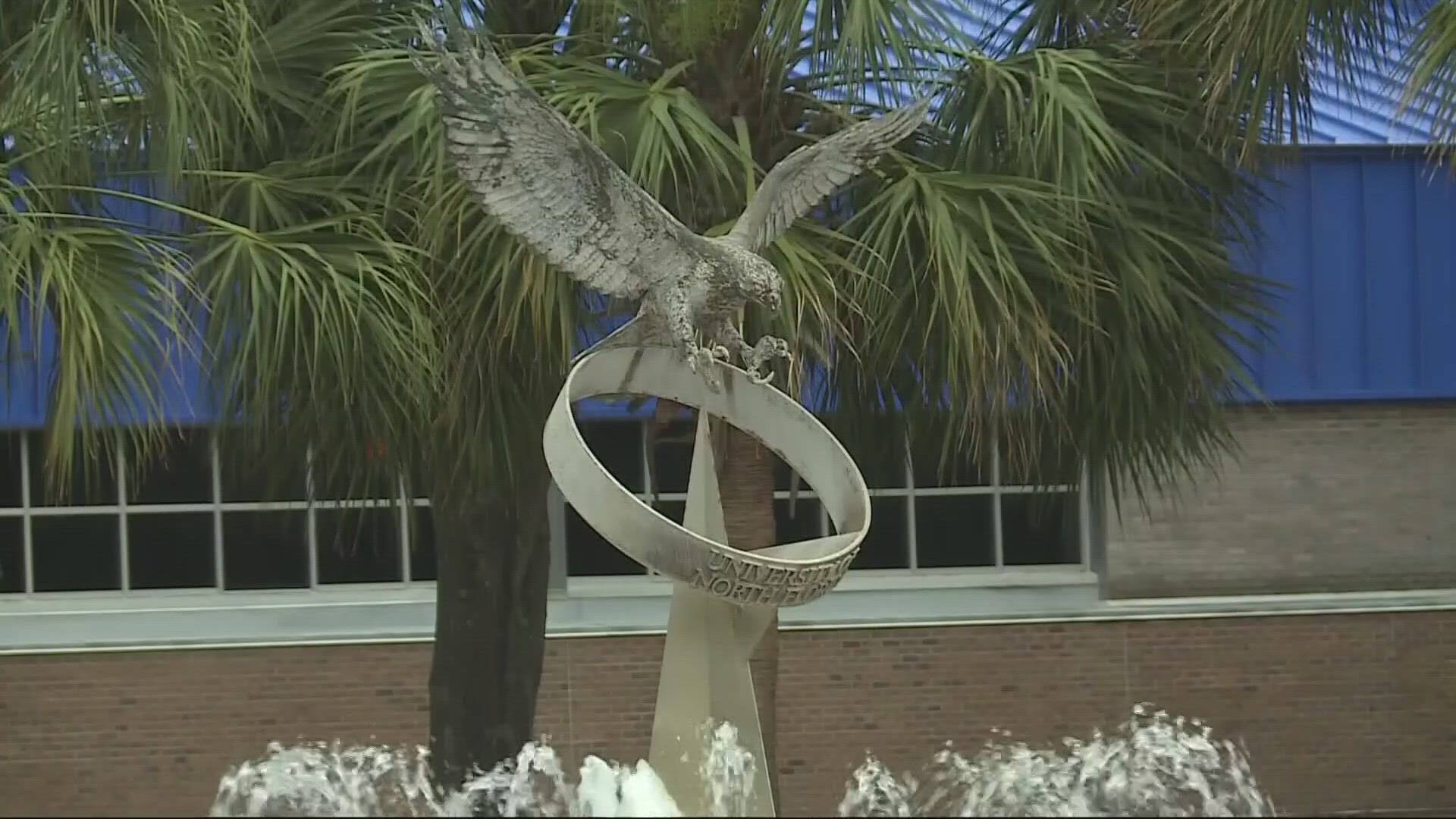JACKSONVILLE, Fla. — Multicultural Greek organizations worry they will be banned from public university campuses after the passing of House Bill 999 on Monday.
Governor Ron DeSantis’ office has responded to First Coast News saying that’s not true, and those organizations are still allowed to operate.
Universities like Edward Waters won’t be included in the implications of H.B. 999 because the university is private.
It doesn’t mean professors and students attending the school don’t have opinions.
“We fight for those who are fighting for themselves and those who are not able to fight for themselves, so now you’re telling us we can’t exercise our voice,” said Jacque Slater.
Slater is a professor at Edward Waters University. She’s also a member of a Black Greek organization.
She says much of what she remembers about being a part of diversity programs in school was about helping those who didn’t have a voice.
“They came for my Jewish sisters and I didn’t help, they came for my Hispanic sisters and I didn’t help, and when they came for me, there was no one to help me… that’s a quick snippet of that poem,” said Slater.
She says the passing of House Bill 999 could hurt diversity equity and inclusion groups even if the Divine 9 Greek life isn’t banned from public universities.
Governor DeSantis says 34 million dollars have been spent on DEI initiatives earlier this year. He says the money could be used in a better way.
“It’s been used in the administrative apparatus of universities to try to impose diversity of thought but not to try and impose uniformity of thought and instead of inclusion, the people that dissent from this orthodoxy are actually excluded and marginalized,” said Governor DeSantis.
The bill would ban spending on DEI at any publicly funded university.
It would also allow for professor's tenure to be called into review at any time.
The governor hosted a roundtable discussion on HB 999 Monday.

